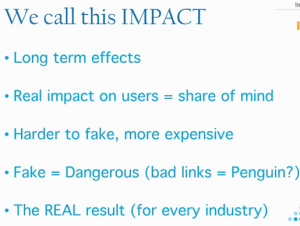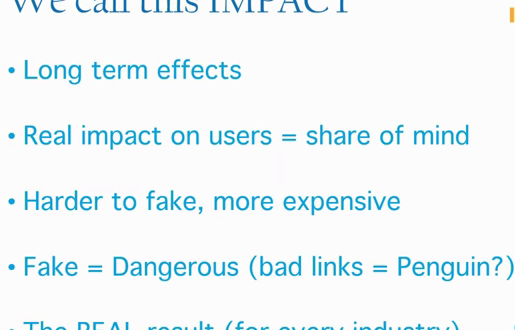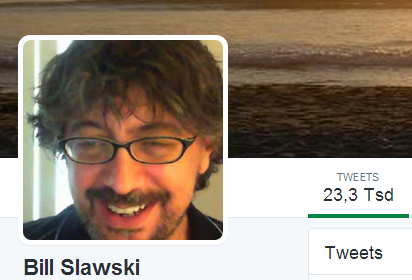For many years Offpage-SEO was equal to linkbuilding. Linkbuilding was the synonym for Offpage-SEO.
For a very long period the metric for linkbuilding success has been quantity of links. With the rise of Penguin updates and manual actions the focus shifted to quality links. Soon the SEO scene recognized that you can’t really build or buy those high quality links but instead you have to earn them.
At this point content marketing entered the SEO scene. The truth is that content marketing has been something new especially for SEOs. In other marketing channels content marketing is already a common disciplinw for a long time.
Of course the main target of content marketing activities performed by SEO was a so called link-driven target. They wanted to earn as many high quality links as possible.
So you often can read that to earn high quality links it is most often necessary to create content that generates a lot of buzz. And even when you did research to identify ‘high quality content’ people often looked at buzz as one of the success metrics. So tools like for example Buzzsumo were used to identify content with a high number of likes and shares – often summarized as ‘buzz’ – with the intent to build similar high quality content.
Last but not least beside backlinks ‘buzz’ became a often used metric to develop KPIs and escpecially to identify ‘high quality content’. ‘Buzz’ became the buzzword in SEO and content marketing circles.
But is buzz (beside backlinks – which are often still paid links even in content marketing campaigns) really the best metric to identify ‘high quality content’?
With this question in mind I watched an interesting video by Christoph C. Cemper, the founder of Impactana, which focused on another metric called ‘impact’.
Christoph summarized the disadvantages of buzz in a very smart way. In his eyes buzz signals:
- are volatile and just measure distribution
- are easy to fake
- are easy to buy
And as he said everbody can like 50 articles in 5 minutes without even opening these articles.
Christoph is convinced that there are better metrics to measure and identify content marketing success, that he summarizes as ‘impact’.
- clicks
- views
- comments
- downloads
- backlinks
- referring domains
In my opinion escpecially backlinks and referring domains have nearly the same disadvantegas as buzz, mainly because there are still a lot of paid links today and backlinks are still easy to buy or fake.
But I agree with Christoph that a combinations of all those factors is really a good indicator for high quality content, as they also contain user resonance and user engagement. And as Christoph emphasizes typicall ‘buzz’ content ist often content like cat content. That’s content most of us can’t live of, as we work in industries were cat content doesn’t help you to reach you company goals.

Source: ‘Introduction to Impactana’ on Youtube
So what’s your opinion on ‘buzz’ and ‘impact’? Do you also think that ‘buzz’ isn’t the content marketing buzzword anymore? What metrics do you consider as the most important metrics considering succesfull content marketing? Would like to hear your opinion in the comments below.



